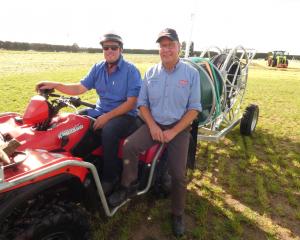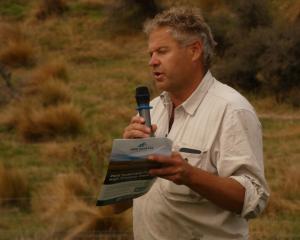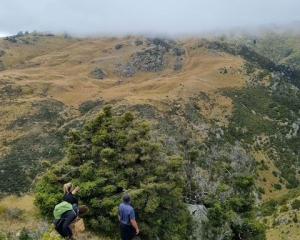All poultry exports are on hold until New Zealand is free of the highly pathogenic bird flu detected at a Moeraki egg farm, Biosecurity Minister Andrew Hoggard says.
The Ministry for Primary Industries earlier said laying hens foraging outside were thought to have been infected with the H7N6 strain through a low pathogenic virus from wild waterfowl.
There are 40,000 chickens in the shed where the virus was identified, and teams will begin eradicating birds on Tuesday.
Biosecurity New Zealand deputy director-general Stuart Anderson said there had been no signs of further infection so far.

"While it is not the H5N1 type circulating among wildlife around the world that has caused concern we are taking the find seriously," he said.
"Low pathogenic viruses are present in wild birds here, especially waterfowl like ducks, geese, and swans and the virus can mutate on interaction with chickens.
Chickens in other sheds at the infected farm were not showing any signs of influenza.
A 10km buffer zone had been placed around the farm, along with restrictions to prevent the movement of animals, equipment, and feed.
Hoggard has confirmed the farm at the centre of the highly pathogenic bird flu outbreak also had an outbreak of Infectious Bursal Disease Virus Type 1 in 2019.
The virus was discovered in layer hens at the egg farm.
Prime Minister Christopher Luxon said he was informed on Sunday about the case. The farmer understood the risk and had worked closely with MPI to control its spread.
There was no further risk and no safety concerns, Luxon said.
The government was concerned about the arrival of H1N1 - likely to be via wild birds from Antarctica - and MPI had been undertaking long-term planning around the issue.
















